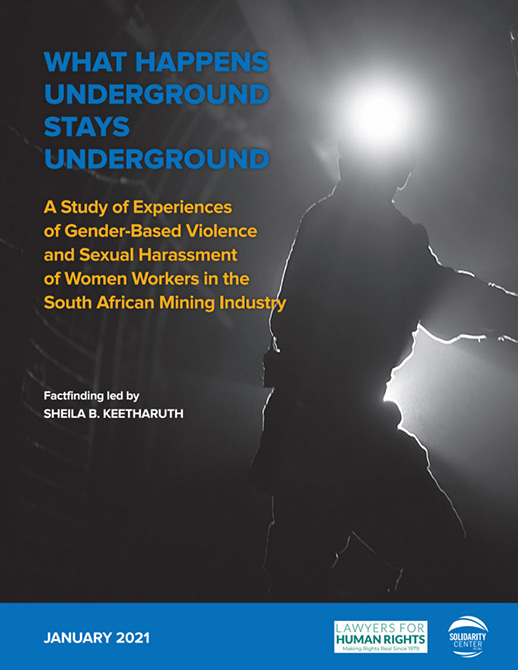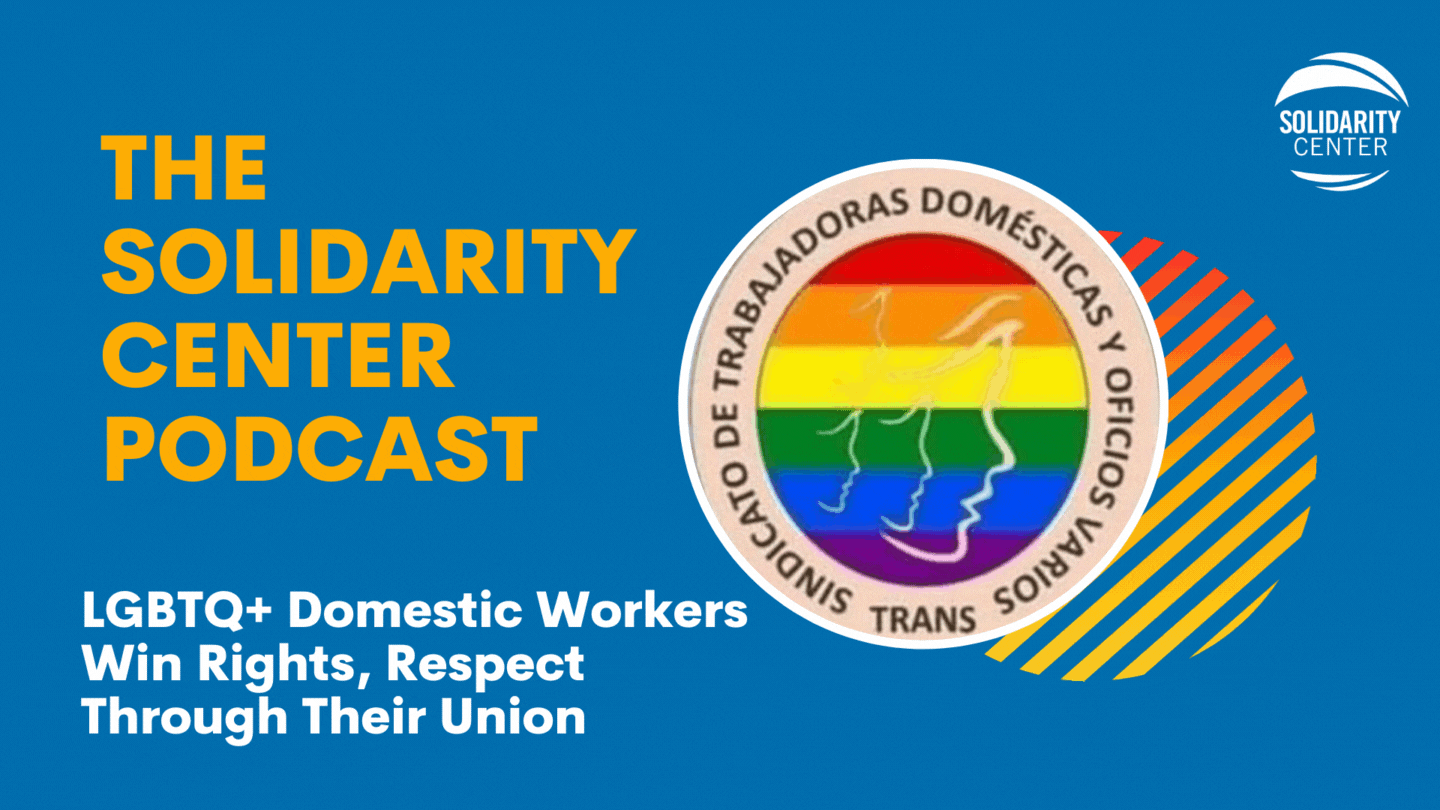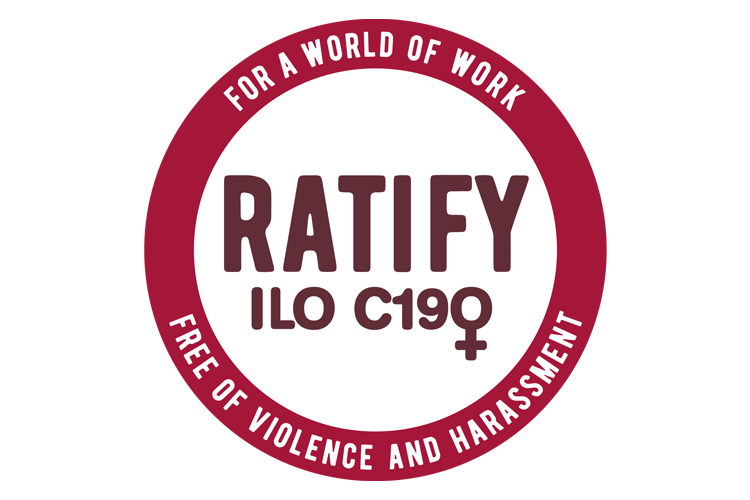Women working in South African mines “at times confront danger, violence and indignity in their work environments,” where gender-based violence and harassment (GBVH) appears both widespread and normalized, according to a new report from the Solidarity Center and South...
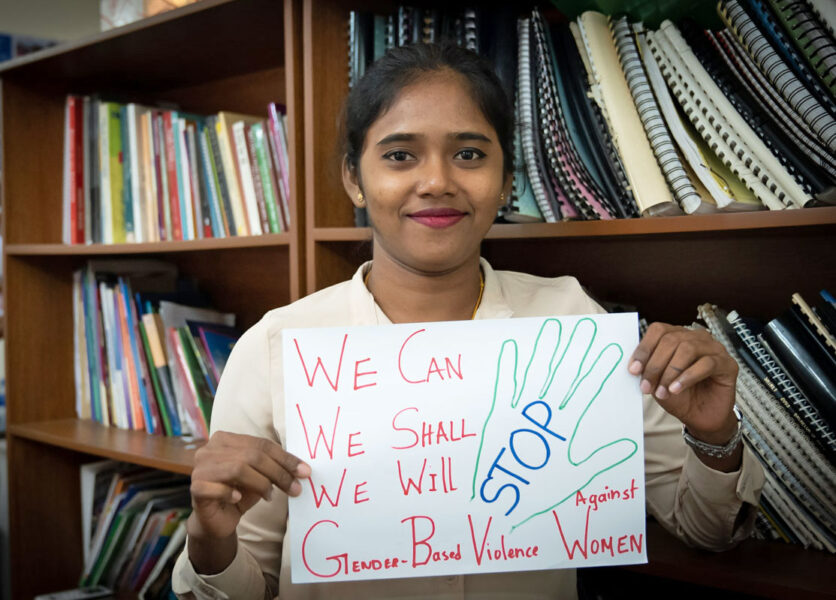
The Solidarity Center and worker rights organizations like the Lanka Eksath Jathika Workers Union in Sri Lanka advocated for a landmark global standard to eliminate gender-based violence and harassment at work and are pushing for its ratification by governments. Credit: Solidarity Center/Sean Stephen
The Solidarity Center prioritizes preventing and addressing gender-based violence and harassment in the world of work, recognizing it is a primary barrier to achieving gender equality and a key step for security of all workers’ rights. The Solidarity Center seeks to enhance the voice of women and other marginalized workers in policy making at the local, national, and international levels to reduce the risk of gender-based violence at work and build leadership, voice and direct participation of women and other marginalized workers and their unions.
Beginning in 2014, the Solidarity Center was a core member of a global coalition of worker rights organizations led by women union activists that successfully advocated for a landmark global standard (Convention 190) to eliminate violence and harassment in the world of work, including violence against women at work which was adopted by the International Labor Organization in June 2019. We support our partners as they campaign for their governments to ratify ILO Convention 190.
See related factsheets, videos and reports.
Podcast: LGBTQ+ Domestic Workers Win Rights with Their Union
As a trans domestic worker from Nicaragua working in Guatemala, Francia Blanco says her experiences with verbal and physical abuse, discrimination, and forced labor conditions led her to take action to build a world where trans domestic workers had rights, respect and...
Union Women Launch Global Petition to End Gender-Based Violence
Union women and Solidarity Center partners from the Middle East and North Africa spearheaded a petition calling for governments to ratify International Labor Organization Convention 190, the landmark global labor standard adopted in June 2019 to eliminate violence and...
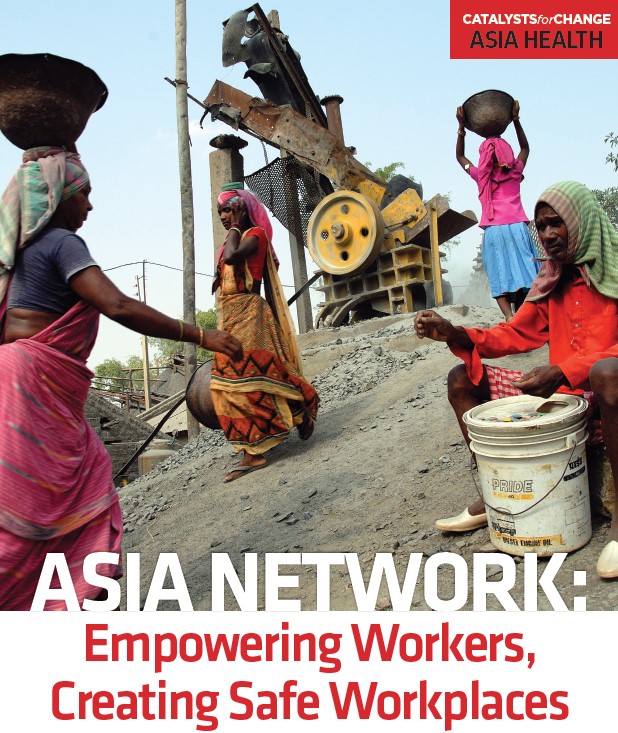
Asia Network: Empowering Workers, Creating Safe Workplaces
Millions of workers in Asia often risk their lives in unsafe and unhealthy workplaces. Through its network of more than 200 regional and national organizations in 14 Asian countries, including sector, national and global unions, ANROEV achieved concrete, worker-led...
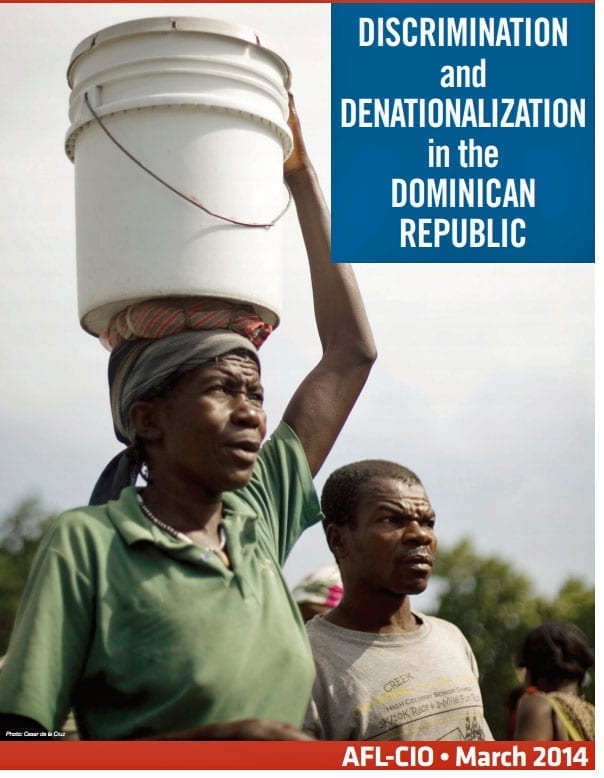
Discrimination and Denationalization in the Dominican Republic
A September 2013 Dominican court ruling taking away citizenship from many migrants means they will be excluded from any activity that requires official identification, including working in the formal sector, attending school, opening a bank account, accessing health...
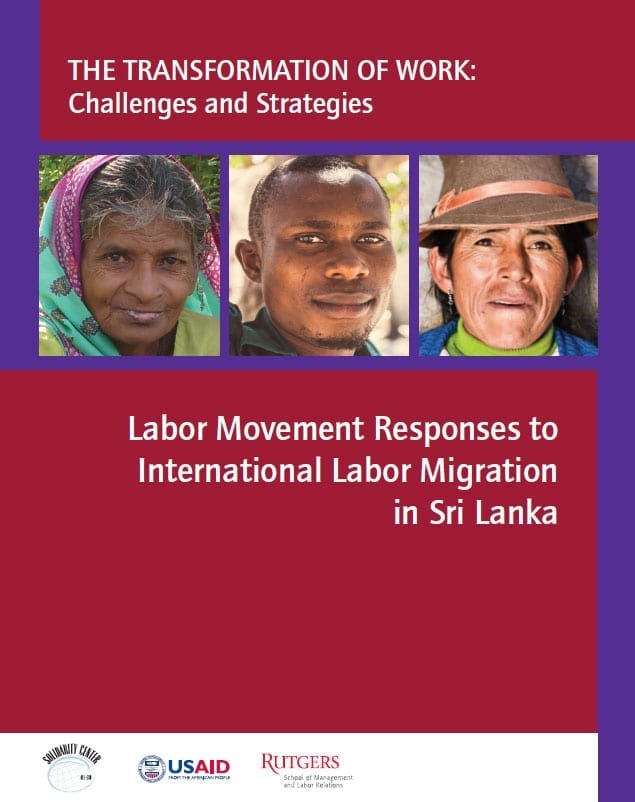
Labor Movement Responses to International Labor Migration in Sri Lanka
This report looks at the political and economic context within which Sri Lankan unions have attempted to respond to migrant workers, unions' role in the key governance and policy mechanisms that pertain to labor migration, and the way the Sri Lankan labor movement...
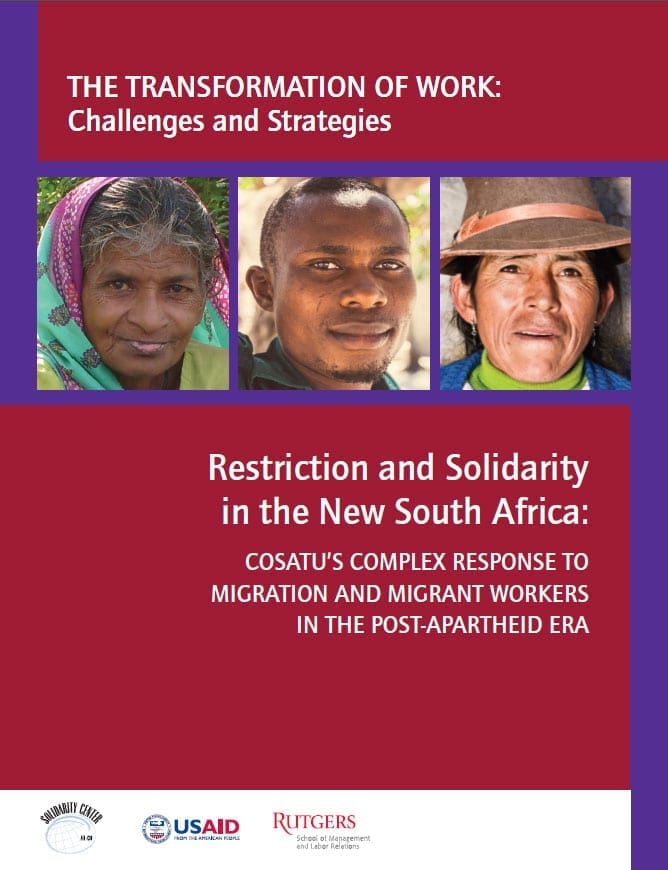
Restriction and Solidarity in the New South Africa
This report look at South African labor’s complicated engagement with migrant workers by examining the migration policy debate, labor’s response to the xenophobic attacks of 2008 and two organizing campaign in the agricultural sector. It sheds light on how labor...
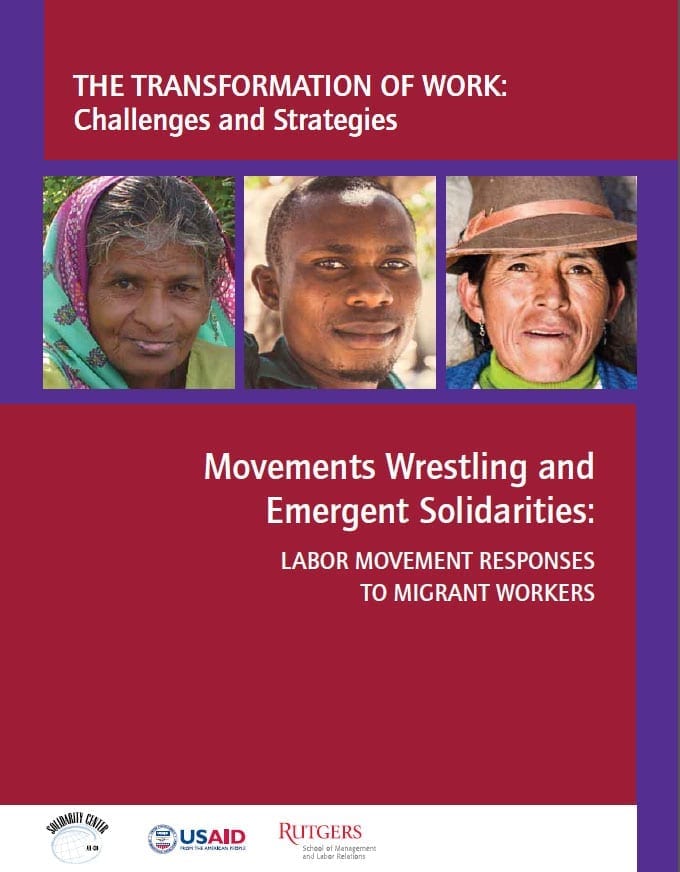
Movements Wrestling and Emergent Solidarities: Labor Movement Responses to Migrant Workers
This report synthesizes a two-year project. Part one consisted of desk and case study research conducted by telephone in Jordan and the Dominican Republic looking into cases where unions had made significant changes in their approach to migrant worker organizing. Part...
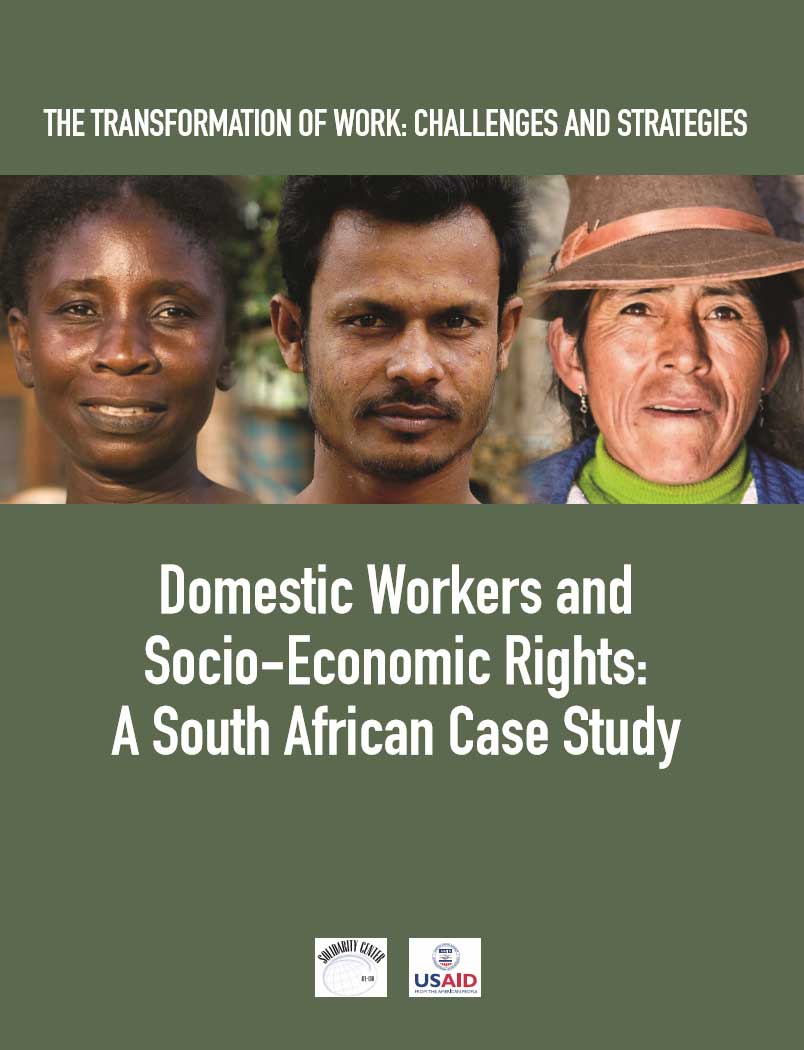
Domestic Workers and Socioeconomic Rights: A South African Case Study (2013)
This report explores the challenges of empowering domestic workers in South Africa through the traditional trade union focus on worker rights, democratic voice and collective action. This Solidarity Center report is part of a multiyear research project, funded by the...

